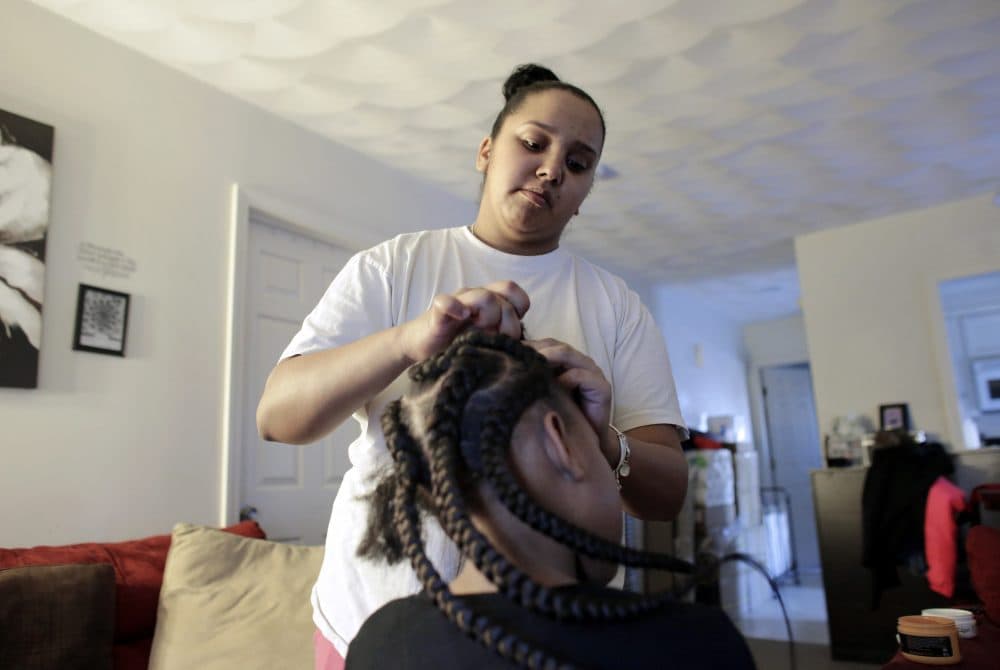Advertisement
Hair-Braiding Professionals Fight For Right To Practice Without Licenses
Resume
Hair braiding has been practiced for centuries in African communities, and by African-Americans and others in the U.S. It doesn't require any chemicals, hair dyes or cutting. But to legally braid hair, 13 states require a cosmetology license.
Pamela Ferrell (@cornrowsandco), co-founder of Cornrows & Co., who has fought and won the right to practice her profession without a license, speaks with Here & Now's Peter O'Dowd.
"The only thing that [cosmetology schools] teach you about African-American hair, or what we call circle hair, is to straighten it," Ferrell says.
Interview Highlights
On being one of the first people to challenge licensing requirements in 1991
"In 1978, I was fired from my part-time job at a fabric store because of my braided hair style, and I was so angry I said that I would braid so many heads that this would not happen to any other woman. At the time I was a college student, so I created fliers and started braiding hair out of my apartment to pay the bills. Two years later my now-husband and I opened Cornrows & Company. ... And then in less than two years, we get a call from someone telling us to close our business because we don't have a cosmetology license. And of course my husband told them no."
"They don't teach what we do. It is a Euro-centric curriculum."
Pamela Ferrell, on cosmetology school
On the history of braided hair
"Hair braiding has been around, we know, more than 5,000 years. There have been human remains found where braids are, you know, on the head. It's a cultural practice that has been passed down. There are traditions in terms of how it's taught, who teaches it, and this has been going on long before cosmetology. Cosmetology in this country was established in 1938."
On the use of a cosmetology license
"Cosmetology is distinctly different from hair braiding. Cosmetology at one point, African-Americans couldn't even go to cosmetology schools, they don't do natural hair care, they don't do hair braiding. Hair braiding is a very distinct, unique skill."
On discrimination against people with these hair styles
"I have tracked a pattern of discrimination against people with circle hair ... have been discriminated against for at least 40 years, and I'm talking about where women have lost their jobs. I recently went before the United States Army and did a presentation, because they had recently changed their grooming policy to ban twist hair styles. And a twist hair style for circle hair is like a blow dry for straight hair. I mean it's just what we do to our hair. And so this has become the bigger problem: This constant attack on our hair, no matter how it shows up — whether it shows up in the workplace, whether it shows up when we open businesses. And now, they have created policies where children cannot wear braids and Afros to schools."
This article was originally published on April 09, 2018.
This segment aired on April 9, 2018.